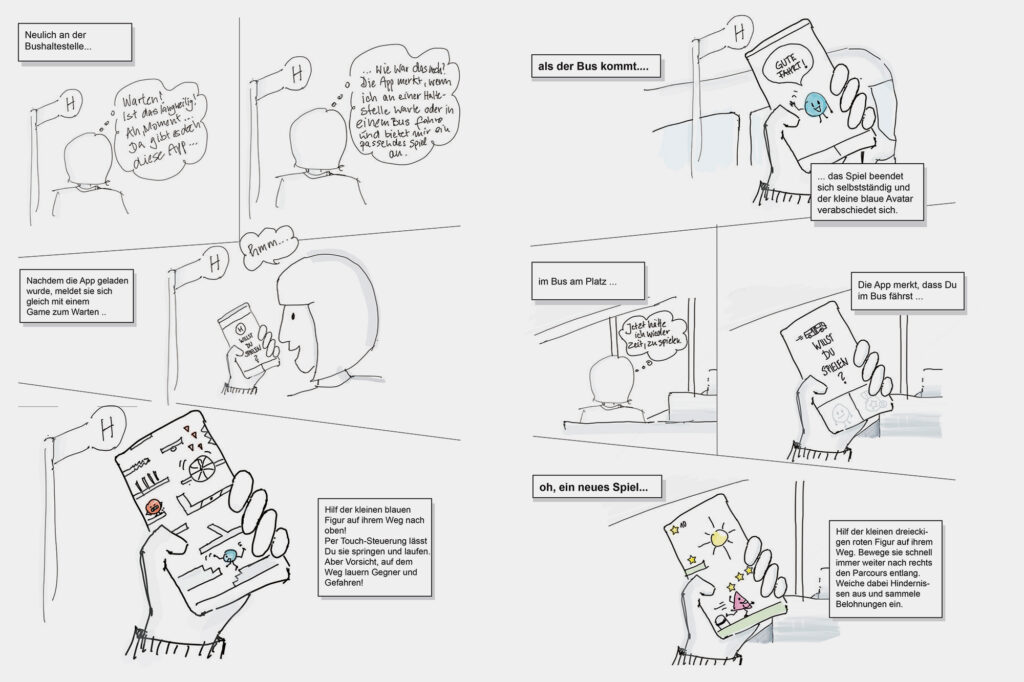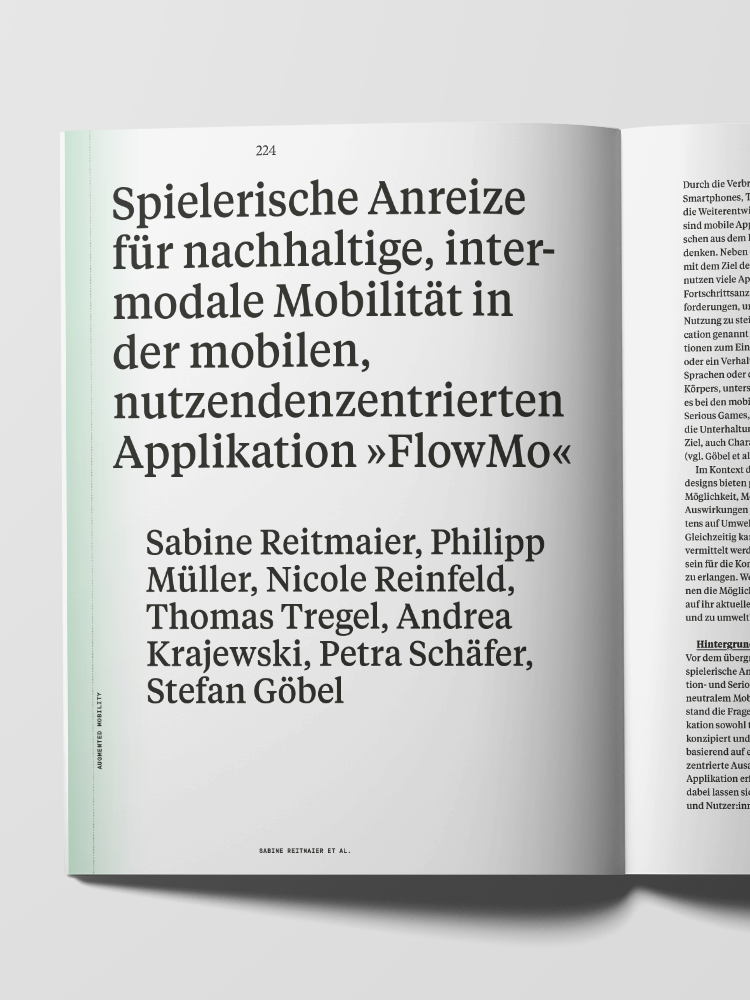
As part of the LOEWE research cluster “Infrastructure – Design – Society”, an interdisciplinary team investigated whether personalized applications are useful to motivate users to adopt climate-neutral mobility behavior through playful incentives, i.e. with the help of gamification and serious game elements. The central question was how should such an application be designed, both technologically and thematically. To investigate this question, a user-centred development of such a mobile application was planned based on a preliminary concept. Here, the challenges can be subdivided into the categories of functionality and user acceptance.
Functional challenges include the technical implementation of mobility recognition, which should accurately register and represent the users’s mobility behavior, as some modes of transport are difficult to distinguish from one another. By means of the built-in sensor technology found in mobile devices, one area of current research, therefore, deals with the challenge of distinguishing between transport modes with similar road behavior, i.e. automobiles and buses, something that is not possible with current applications. For a close connection between game content and mobility recognition, it is also important that this function works in real time, and that temporary errors such as the unstable recognition of two differing modes of transport be avoided, since this can be highly detrimental to the gaming experience.
Among the challenges regarding acceptance by users are the following questions: Will potential users accept the tracking of their mobility behavior that results from the use of mobility recognition? If so, under which circumstances? Which play elements and genres do users expect to find in such mobile applications? How closely should these be linked with the player’s individual mobility behavior? Do potential users expect additional options and features that are designed to encourage regular use of the app?
A detailed concept was developed based on user surveys with online questionnaire and interview guidelines, prototyping with interactive click dummies in low- and high-fidelity as well as prototyping with a drawn digital storyboard. It consists of a) a self-measurement component that registers and depicts user behavior while rewarding environmentally friendly behaviour, and b) a game component in which players assist the main character “Florin” to purify the air and to maintain its purity through environmentally aware mobility behavior.
Type of project • Research project
General management • PD Dr.-Ing. Stefan Goebel, Technische Universität Darmstadt
Lead • Prof. Andrea Krajewski (Hochschule Darmstadt), Prof. Peter Eckart
Team • HfG: Dipl.-Des. Sabine Reitmaier, Silvio Lepszy, Sarah Lerch
Status • completed
Duration • 01/2018 – 03/2022
Cooperation • Technical University Darmstadt: Prof. Dr.-Ing. Ralf Steinmetz PD Dr.-Ing. Stefan Göbel, Dr.-Ing. Thomas Tregel, Philipp Müller; Frankfurt University of Applied Sciences: Prof. Dr.-Ing. Petra K. Schäfer, Andreas Gilbert, Nicole Reinfeld
Additional cooperation partners • accitio GmbH
Funding • Hessian Ministry of Higher Education, Research, Science and the Arts (LOEWE research cluster)
